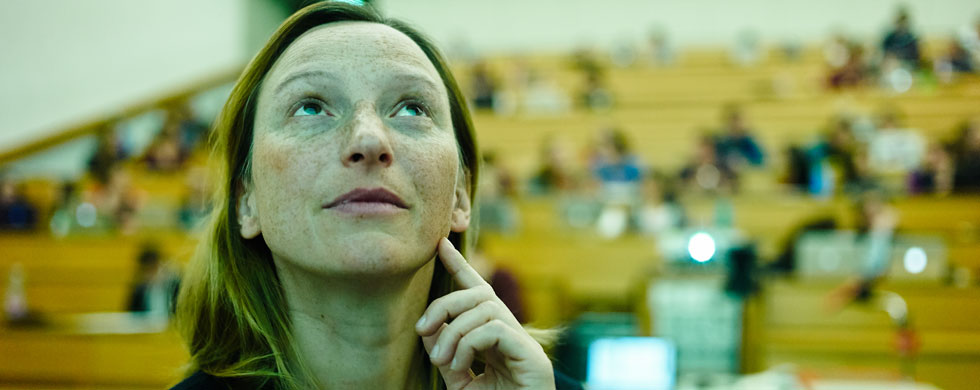Tina works as a lecturer at the University of Applied Sciences and Arts Northwestern Switzerland. She holds a Ph.D. in Economic Geography and a Master’s Degree in Geography, Economics and Business Administration.
Socio-economic resilience in resource-based communities
In the current research project on resilience in resource based communities (funded by the UNIBE Initiator Grant), Tina analyzes the factors relevant for social adaption to actual stressors like e.g. the recent economic crisis and environmental changes. The central question is how resource-based communities that are highly dependent on their natural resources are dealing with an augmented global competition, changing consumer demand and depopulation.
Experience: Socio-economic resilience in resource-based communities
Innovation and Innovation Policy
In a global economy affected by the financial crisis, by increasingly interconnected activities and by growing concerns for sustainable development, established models of economic and territorial development are profoundly called into question. This implies not just transposing existing theories and policy practices to new topical fields of action. It fundamentally calls for a new conception of policy intervention and territorial governance. What are the emerging approaches, practices and policies in the current context of socio-economic change? What are their possible futures in regard to territorial development and innovation policy?
INNO-Futures is a project funded by the Swiss National Science Foundation launched at the universities of Neuchâtel and Bern promoting interactive reflections between policy makers, regional agencies and research on the future of regional development and innovation policy.
Experience: Innovation and Innovation Policy
Geographies of Valuation
This research strand focuses on how economic and social value creation is changing. During the last centuries the dominant forms of value creation have changed from fordism (mass production) to post-fordism (flexible specialization) and financialization in the production process of economic goods and services. Furthermore, a major trend towards the aestheticization of the society can be observes leading to an augmented valorization and a transfer of social or symbolic values into the production process. As a consequence, different concepts such as the green city, the green-economy, the creative city and the creative class have emerged in the academic literature and political practice.
This research strand answers questions of how value is defined and created in different markets, e.g. in the global (fine) Arts market and the local beer market (micro breweries) in different places. Another focus lies on the link between valuation and (social) innovation in economy and society.
Experience: Geographies of Valuation
Teaching
With over 10 years of teaching at different Universities, Tina is an experienced teacher. Her courses are in urban planning and economic geography; concerned with methods for regional analyses. e.g. mixes methods, qualitative analysis and are also subject-specific, e.g. regional resilience, valuation economies, creativity and economic development, market development and urban and regional economic development policies.

